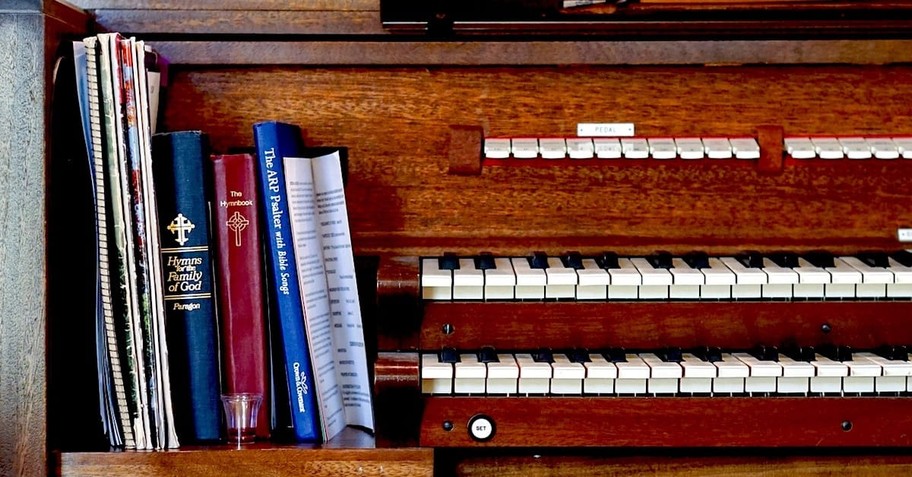10 Christian Hymns That Need to Be Put to Rest

There are timeless, classic hymns that are sung in churches all over the world today. They are beloved hymns with beautiful messages of faith, memorable melodies, and rich qualities. I imagine they will outlast many of the modern worship songs we sing today, and rightfully so.
However, there are hymns that simply don’t make sense, and perhaps never made sense to the average worshiper. They are songs that are full of puzzling phrases that leave a person questioning rather than worshiping. Perhaps, it’s time to put to rest a few of these hymns—not because they are “bad,” but because they simply don’t cultivate a heart of worship. After all, Jesus reminded the woman at the well that the Father desires His followers to worship in Spirit and in truth.
“But the hour is coming, and now is, when the true worshipers will worship the Father in spirit and truth; for the Father is seeking such to worship Him. God is Spirit, and those who worship Him must worship in spirit and truth.” (John 4:23-24 NKJV)
Here are 10 Christian hymns that need to be put to rest:
Photo courtesy: Unsplash.com

1. Onward Christian Soldiers
Written in 1865, by Rev. Sabine Baring-Gould, this song was never intended to be published as a hymn. In fact, the author wrote it for a children’s festival with the intention that the children of his village would sing it as they marched in procession.
However, it wasn’t long after, that Onward Christian Soldiers gained popularity and was included in the English hymnal. Although there is nothing inherently wrong with this hymn, it simply does not usher us into an atmosphere of worship.
Photo courtesy: ©Thinkstock

2. Bringing in the Sheaves
What are sheaves? And why should we bring them in?
When outlining this article, this was the one hymn my husband suggested be included. He grew up singing about sheaves, but never knew what it meant. In fact, when he was really small, he used to sing, “bringing in the sheeps,” because that was what made sense to his young mind!
To this classic hymn’s defense, I did a little digging and found this beautiful passage in Psalm 126 that may explain the meaning of “sheaves” a bit better:
“Those who sow in tears shall reap in joy. He who continually goes forth weeping, bearing seed for sowing, shall doubtless come again with rejoicing, bringing his sheaves with him.” (Psalm 126:5-6)
Photo courtesy: Unsplash.com

3. Let All Mortal Flesh Keep Silence
Oh, dear. My mortal flesh is having a difficult time keeping silent regarding this 1864 hymn. With roots that date back to the fourth century, (the fourth century!), I’m afraid this old hymn should be put to rest sooner rather than later.
Not only is this song confusing, it uses difficult words such as homage, vesture, and vanguard in its verses. The everyday worshiper would find this song challenging to sing, and, more of a distraction than a song of worship.
Photo courtesy: Unsplash.com

4. Alas! And Did My Savior Bleed
I personally love singing songs that proclaim the blood of Jesus. And in no way do I think we should shy away from the cross, the blood, or the reality of sin when we worship. (That is a dangerous trend that probably deserves its own separate article.) However, the words of Alas! And Did My Savior Bleed include phrases such as,
Would He devote that sacred head for such a worm as I…
Thy body slain sweet Jesus thine, and bathed in its own blood…
Huh? I don’t know about you, but those lines make me grimace as I read them. I think this is one hymn we can safely put to rest.
Photo courtesy: pxhere

5. I Asked the Lord
The title of this hymn, written by the infamous John Newton, author of Amazing Grace, sounds kind of nice, doesn’t it? But when taking a closer look at the lyrics, we read these words:
I hoped that in some favored hour at once He'd answer my request
And by His love's constraining power subdue my sins and give me rest
Instead of this He made me feel the hidden evils of my heart
And let the angry powers of Hell assault my soul in every part.
My, oh my. I’m not quite sure what the intended meaning is, but to me, it speaks of a wrathful, condemning God who ignores the person requesting His help. Scripturally, it doesn’t make sense that someone seeking the Lord would be assaulted by the angry powers of hell. Yes, the conviction of our sin is very real, but the immediate grace of God that covers the repentant heart is also important to mention.
Photo courtesy: Unsplash.com

6. Ambassadors of God
Written by Charles Wesley in 1776, this hymn sounds completely normal by title, but quickly turns into a real tongue-twister. After reading the first stanza, it’s clear that this song doesn’t lend itself to the clear meaning of being God’s ambassadors.
God, the offended God most high, ambassadors to rebels sends;
His messengers His place supply, and Jesus begs us to be friends.
Instead, the Bible describes our role as Christ’s ambassadors this way:
“We are therefore Christ's ambassadors, as though God were making his appeal through us. We implore you on Christ's behalf: Be reconciled to God.” (2 Corinthians 5:20 NIV)
Photo courtesy: Pixabay

7. Beulah Land
I apologize ahead of time for including this song on the list. I still remember, back in the day, hearing a duet of this hymn, where the singers sang with all the fervor anyone could have. But as I researched the hymn and read the words for myself, I couldn’t help but include it.
The term Beulah Land simply isn’t familiar enough to the worshiper to make sense. And though the original theme of the song was a noble one, this hymn ends up being more confusing than inspiring.
On a positive note, here is the verse in Isaiah from which the song was derived:
“You shall no longer be termed Forsaken, nor shall your land any more be termed Desolate; But you shall be called Hephzibah,and your land Beulah…” (Isaiah 62:4)
Photo courtesy: ©Thinkstock/Highwaystarz-Photography

8. Faith is the Victory
I remember singing this hymn many times as a teenager at the small country church where I played the piano alongside the worship leader. There is one phrase, in particular, that is sweet to the soul.
His banner over us is love, our sword the Word of God…
However, my complaint against this song is the chorus itself:
Faith is the victory! Faith is the victory!
Oh, glorious victory that overcomes the world.
Yes, it is scripturally based, as recorded in 1 John 5:4-5: "For whatever is born of God overcomes the world. And this is the victory that has overcome the world—our faith. Who is he who overcomes the world, but he who believes that Jesus is the Son of God?"
My concern, is that Christians will forget that faith in Jesus Christ is more than words. Faith is belief of heart, mind, soul, and strength, and the works that come from that faith. (James 2:20)
Let’s remember Who has overcome the world—Jesus, Himself. And in Him we have put our faith.
Photo courtesy: ©Thinkstock/GordonImages

9. For the Beauty of the Earth
Written by poet and teacher, Folliott Sandford Pierpoint, this song is definitely poetical in style. While there is nothing wrong with the words, as they are an expression of gratefulness, this hymn is included on the list merely due to preference.
To me, the focus is more on the creation rather than the Creator. In my personal opinion, this song should remain as a choir piece, but be put to rest as a congregational hymn.
Photo courtesy: ©Thinkstock/RyanTangPhoto

10. Morning Has Broken
This popular hymn, first written in 1931, was remade by pop musician Cat Stevens in 1971. It has singable phrases and an easy-going melody, but the words are far from worship. In fact, some could say the hymn is more about worshiping the morning and the birds and the singing.
With a poetical style and simplistic melody, this song is easily learned and remembered. Unfortunately, it does little to exalt God and usher in a heart of worship.
In the end, there will always be beloved hymns favored by every generation, and for that, I am grateful. However, let’s put to rest some of the more puzzling, outdated songs that cause the worshiper to scratch their head in baffled wonder instead of raising hands of praise.
Jennifer Waddle is the author of Prayer Worrier: Turning Every Worry into Powerful Prayer. She lives with her family near the foothills of the Rocky Mountains—her favorite place to be.
Photo courtesy: ©Thinkstock/miroslav_1
Originally published April 19, 2018.





